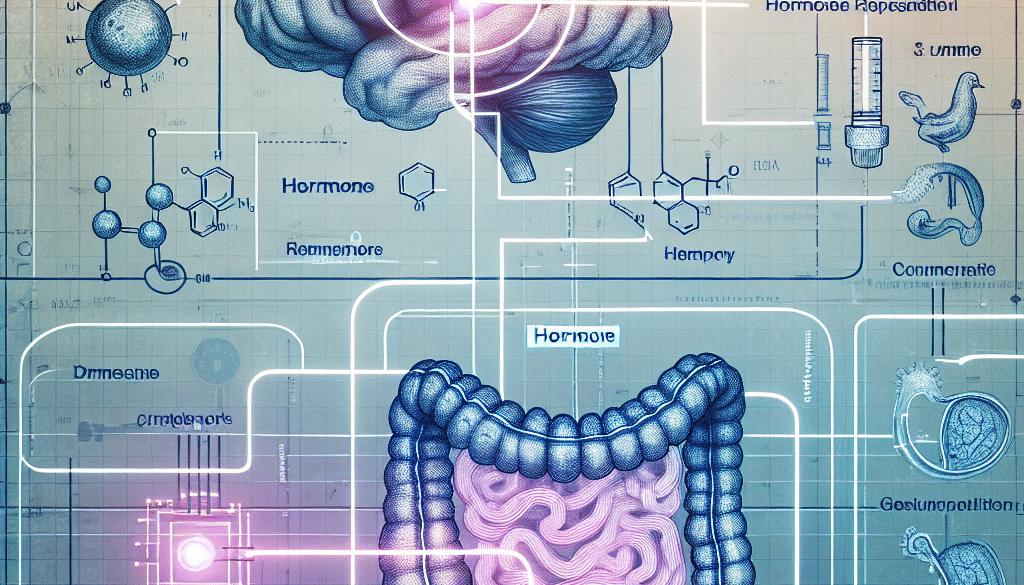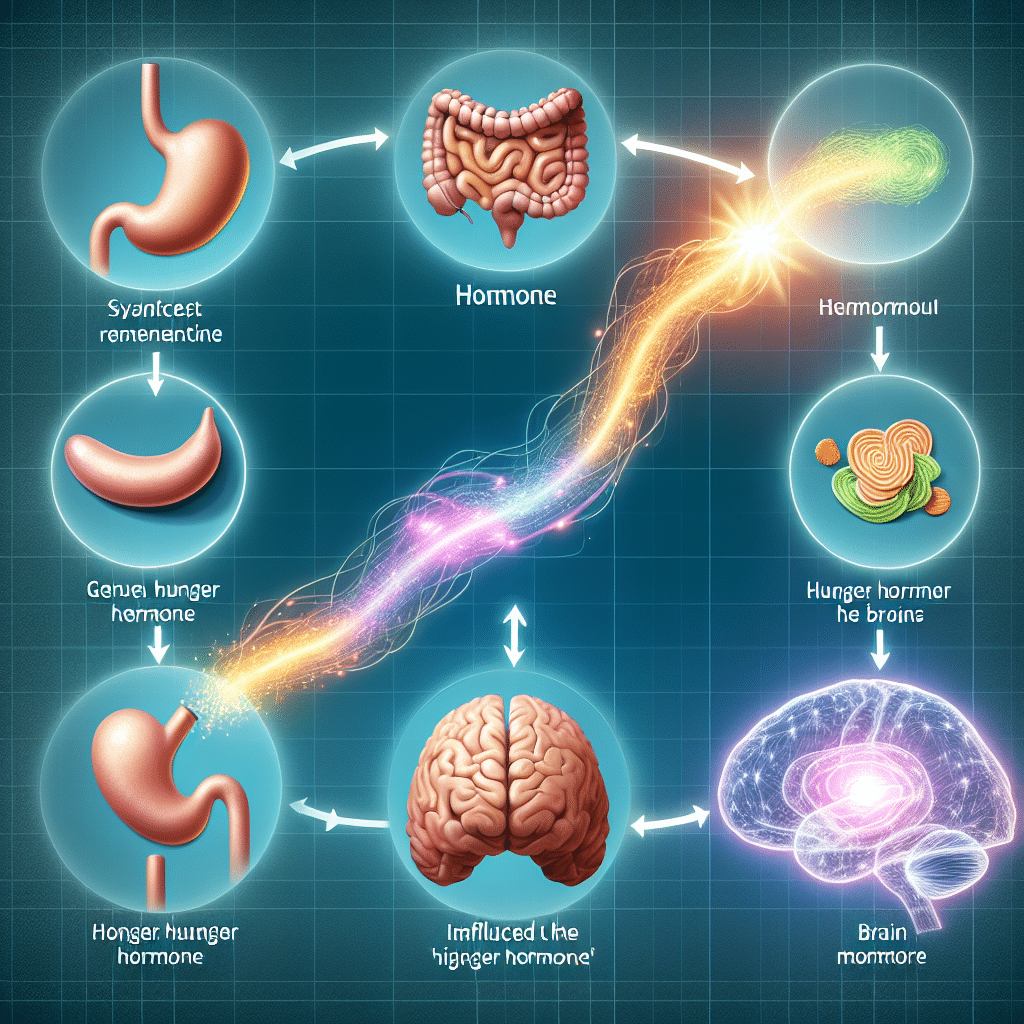Gut-Brain Axis Research Shows Link Between Hunger Hormone and Memory
-
Table of Contents
- Gut-Brain Axis Research: Linking Hunger Hormone to Memory
- Understanding the Gut-Brain Axis
- Ghrelin: The Hunger Hormone
- Link Between Ghrelin and Memory
- Case Studies and Research Findings
- Implications for Health and Disease
- Conclusion: The Future of Gut-Brain Axis Research
- Enhance Your Health with ETChem’s Protein Products
Gut-Brain Axis Research: Linking Hunger Hormone to Memory
The intricate connection between the gut and the brain has been a subject of fascination for scientists for many years. Recent research in the field of neurogastroenterology has shed light on the profound influence that gut hormones have on cognitive functions, including memory. This article delves into the groundbreaking discoveries that link the hunger hormone, ghrelin, to memory processes, and the implications of these findings for our understanding of the human body and potential therapeutic approaches.
Understanding the Gut-Brain Axis
The gut-brain axis refers to the bidirectional communication network that connects the gastrointestinal tract and the central nervous system. This complex system involves direct and indirect pathways, including the vagus nerve, immune system, enteric nervous system, and various signaling molecules such as hormones and neurotransmitters.
- The vagus nerve serves as a major communication route, transmitting signals between the gut and the brain.
- Immune system mediators can influence brain function by signaling through the gut-brain axis.
- The enteric nervous system, often referred to as the “second brain,” contains as many neurons as the spinal cord and regulates gut function independently but also communicates with the brain.
- Hormones produced in the gut, such as ghrelin, can cross the blood-brain barrier and affect cognitive functions.
Ghrelin: The Hunger Hormone
Ghrelin, commonly known as the hunger hormone, is primarily produced in the stomach and is involved in regulating appetite and energy balance. When the stomach is empty, ghrelin levels rise, signaling the brain to induce the sensation of hunger. After eating, ghrelin levels decrease, reducing the urge to consume more food.
- Ghrelin stimulates the release of growth hormone from the pituitary gland.
- It plays a role in reward-seeking behavior, including the motivation to eat.
- Ghrelin has protective effects on the cardiovascular system and metabolism.
Link Between Ghrelin and Memory
Emerging research has revealed that ghrelin’s influence extends beyond hunger regulation and includes significant effects on learning and memory. Studies have shown that ghrelin can enhance cognitive functions by acting on specific receptors in the hippocampus, a brain region critical for memory formation.
- Ghrelin receptors are present in the hippocampus, where they facilitate synaptic plasticity and neurogenesis.
- Animal studies have demonstrated that ghrelin administration can improve performance in memory tasks.
- Human studies suggest that ghrelin levels correlate with cognitive abilities, particularly in older adults.
Case Studies and Research Findings
Several case studies and research projects have provided evidence for the role of ghrelin in memory. For instance, a study published in the journal “Nature Neuroscience” found that mice with increased ghrelin levels showed enhanced performance in spatial learning and memory tasks. Another study indicated that patients with Alzheimer’s disease have altered ghrelin signaling, which may contribute to cognitive decline.
- Research on rodents has shown that ghrelin injections can reverse memory deficits caused by a high-fat diet.
- Clinical trials are exploring ghrelin mimetics as potential treatments for cognitive impairments.
- Observational studies have found associations between ghrelin levels and memory performance in the elderly.
Implications for Health and Disease
The connection between ghrelin and memory has significant implications for understanding and treating various health conditions. For example, ghrelin’s role in memory could lead to novel approaches for age-related cognitive decline and neurodegenerative diseases like Alzheimer’s and Parkinson’s.
- Therapies targeting ghrelin signaling pathways may improve cognitive function in patients with dementia.
- Understanding ghrelin’s effects on memory can inform dietary and lifestyle interventions to enhance cognitive health.
- Research into ghrelin may reveal new insights into the mechanisms of learning and memory consolidation.
Conclusion: The Future of Gut-Brain Axis Research
The exploration of the gut-brain axis, particularly the role of ghrelin in memory, represents a promising frontier in neuroscience. As research continues to unravel the complexities of this relationship, we can anticipate the development of innovative treatments for cognitive disorders and a deeper understanding of how our bodies regulate hunger and cognitive functions. The key takeaways from this research highlight the potential for targeting the hunger hormone to improve memory and cognitive health, offering hope for those affected by memory-related conditions.
Enhance Your Health with ETChem’s Protein Products
Understanding the importance of proteins like ghrelin in our body underscores the need for high-quality protein intake. ETChem’s protein products, including their diverse range of collagens, provide essential building blocks for maintaining a healthy gut-brain axis. Whether you’re looking to support your cognitive functions, improve joint health, or enhance your overall wellness, ETChem offers tailored solutions to meet your protein needs.
About ETChem:
ETChem, a reputable Chinese Collagen factory manufacturer and supplier, is renowned for producing, stocking, exporting, and delivering the highest quality collagens. They include marine collagen, fish collagen, bovine collagen, chicken collagen, type I collagen, type II collagen and type III collagen etc. Their offerings, characterized by a neutral taste, instant solubility attributes, cater to a diverse range of industries. They serve nutraceutical, pharmaceutical, cosmeceutical, veterinary, as well as food and beverage finished product distributors, traders, and manufacturers across Europe, USA, Canada, Australia, Thailand, Japan, Korea, Brazil, and Chile, among others.
ETChem specialization includes exporting and delivering tailor-made collagen powder and finished collagen nutritional supplements. Their extensive product range covers sectors like Food and Beverage, Sports Nutrition, Weight Management, Dietary Supplements, Health and Wellness Products, ensuring comprehensive solutions to meet all your protein needs.
As a trusted company by leading global food and beverage brands and Fortune 500 companies, ETChem reinforces China’s reputation in the global arena. For more information or to sample their products, please contact them and email karen(at)et-chem.com today.





